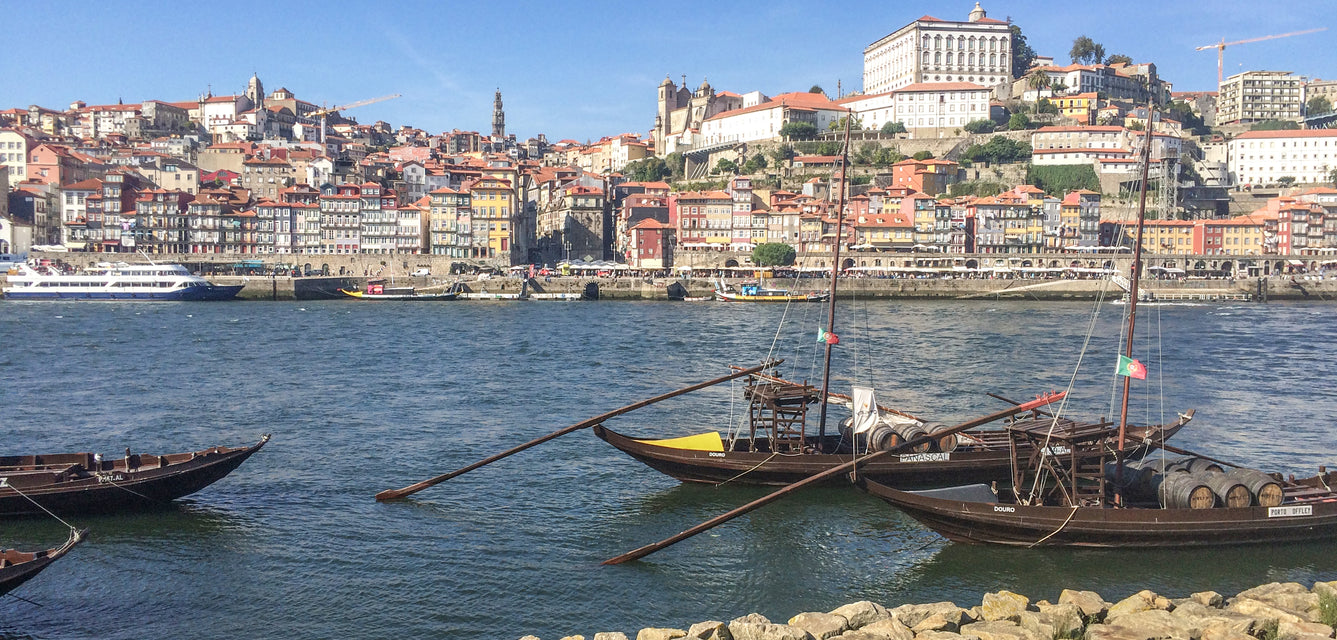Freshé is the perfect go-to option for healthy, delicious eating wherever you are. All-natural ingredients packed into a pocket-sized BPA-free tin with fresh olive oil, hearty vegetables, and certified sustainable protein. Open. Enjoy. Energize.

Freshé is the perfect go-to option for healthy, delicious eating wherever you are. All-natural ingredients packed into a pocket-sized BPA-free tin with fresh olive oil, hearty vegetables, and certified sustainable protein. Open. Enjoy. Energize.

Feed your inner traveler and eat well wherever hunger finds you—anywhere from a mountaintop to your office desk.

Nourish your body with the energy it craves—and enjoy meals packed with protein, vibrant superfoods, Omega 3’s, fiber, vegetables, and olive oil.

Feel great about every bite, with responsibly sourced meals made from certified sustainable protein and all-natural ingredients—packed in a BPA-free tin.

Inspired by the fresh cuisine of the inland valleys of Mexico. Wild-caught tuna, red beans, succulent corn, sweet red peppers, and simmered onion.
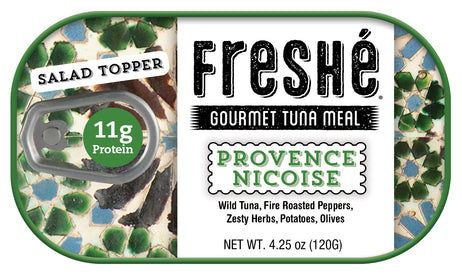
Classically French, ever so tasty. Wild-caught tuna, fire-roasted peppers, zesty herbs, potatoes, and olives.
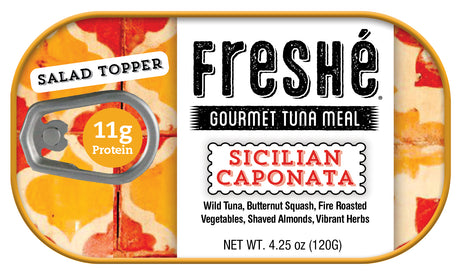
Big on Mediterranean flavor and sunshine. Wild-caught tuna, butternut squash, fire-roasted vegetables, shaved almonds, and vibrant herbs.

Reminiscent of the exotic bustle and aromas of Bangkok’s open markets. Wild caught tuna, sweet and sour beans, crunchy peanuts, leafy greens, and hot Asian spice.
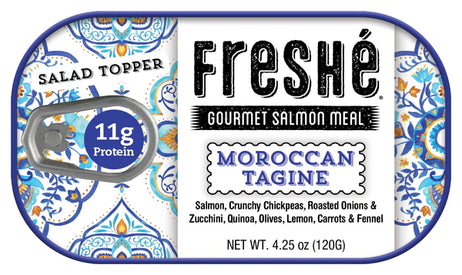
A savory adventure through ancient landscapes. Atlantic salmon, chickpeas, onions, roasted zucchini, quinoa, olives, lemon, carrots and fennel.
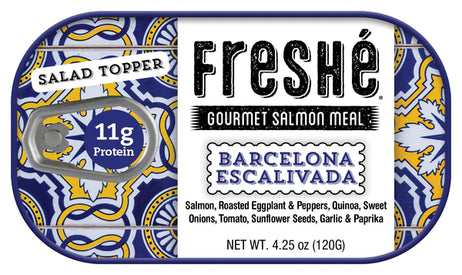
A traditional Spanish smoky grilled vegetable dish. Atlantic salmon, roasted eggplant and peppers, quinoa, sweet onions, tomato, garlic and paprika.
From the vivid coastlines of Portugal and Spain, Freshé brings an old European tradition of artisanal tinned meals to the American shore. Ready-to-eat globally inspired small meals with simple ingredients, vibrant superfoods and sustainably sourced protein, infused with savory herbs & spices. Crafted in time-honored style.
